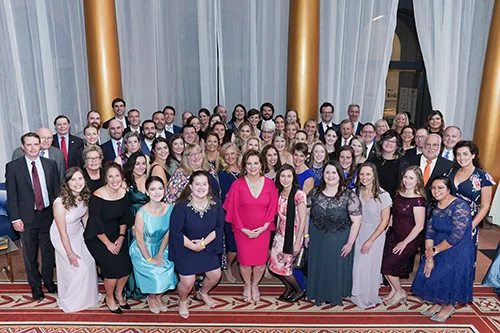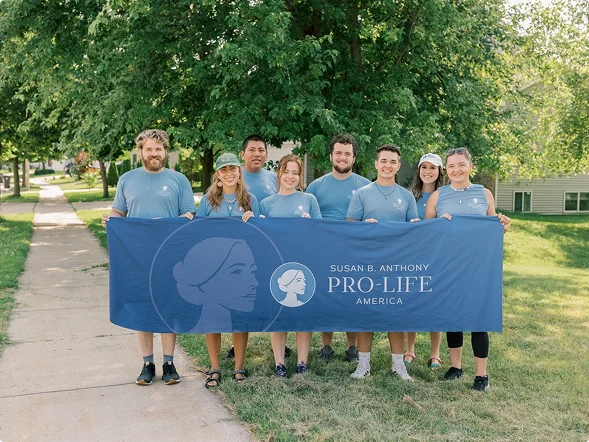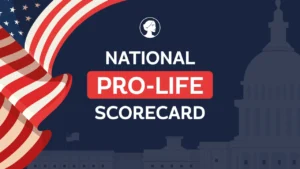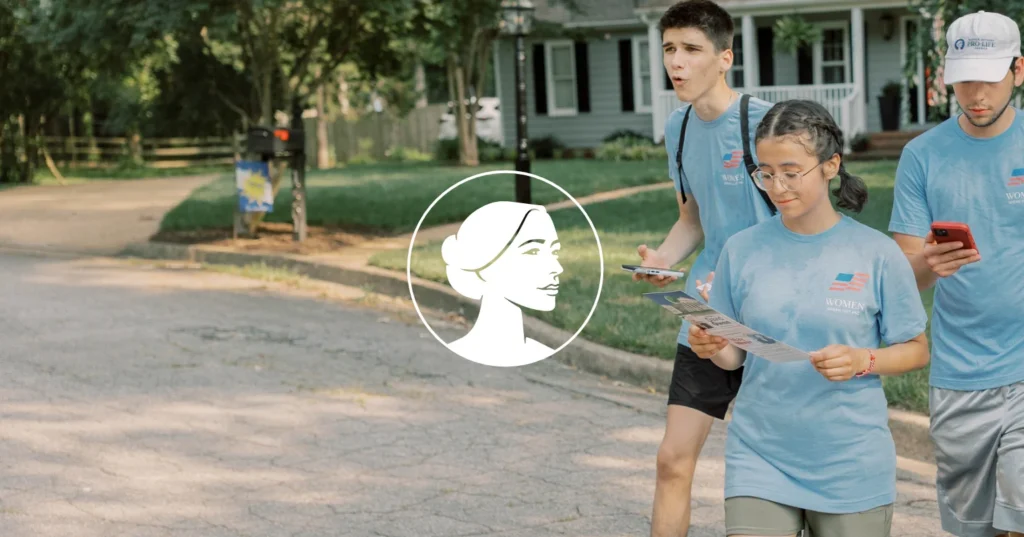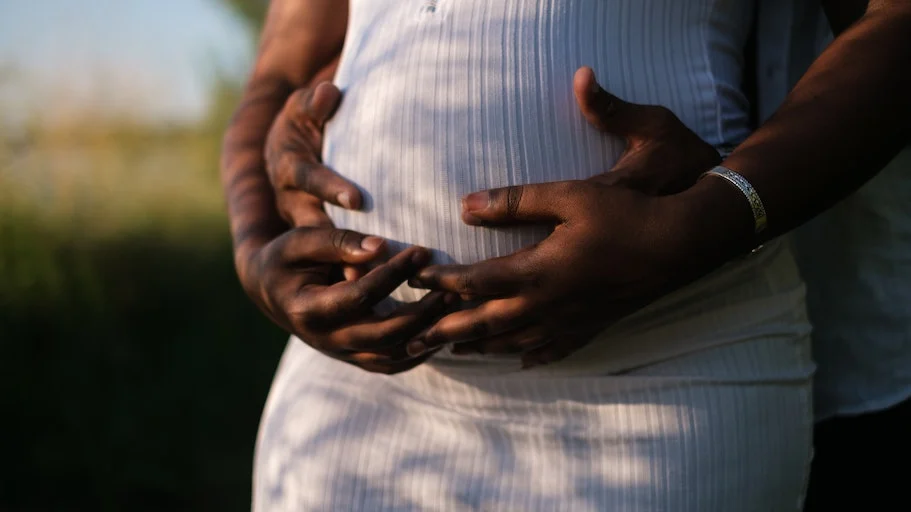How Pro-Life Laws Helped Save Melissa’s Son

“It’s important for even the girls who feel like they’re living a worst-case scenario to know that there are ways and there’s hope – that it might not be as bad as you think it will be,” Melissa said.
She sat in a hospital room, surrounded by medical equipment. She tenderly held her six-month-old son Oryan, who repeatedly turned his chubby little face, slightly obstructed by the thin medical tubes inserted into his nostrils, to peer at his mother.
Melissa is one of many women who had an unplanned pregnancy following the Supreme Court’s Dobbs decision. At the time, she didn’t know what to do.
She already had a 17-year-old son and had just quit her job at the Department of Defense to work at a nonprofit. Her new boss had recently told her that the job wouldn’t work out if she got pregnant due to the extensive travel it required.
On top of that, her baby’s father – who she was no longer with– already had two young children and didn’t want any more. And he made that known to Melissa, as he pressured her to abort their son.
Melissa wasn’t opposed to abortion. Yet for some reason she still physically couldn’t bring herself to schedule the procedure. And, Melissa lived in Kentucky, where state abortion laws at the time only allowed abortion when the mother’s life was at risk.
But that didn’t stop her child’s father. He found a place and scheduled an abortion appointment in Illinois, four hours away.
This was the first of five appointments ultimately scheduled to abort their son.
Melissa had to cancel the first appointment to travel to California to care for her sick mother. Then her life circumstances became increasingly difficult. Fired from her nonprofit job, she was left unemployed and unable to afford her rent.
Just after her child’s father scheduled the second appointment, a trip to the doctor revealed that Melissa’s blood work showed high white blood cell counts and that she had a severe urinary tract infection. Her doctor feared that Melissa’s risk of infection was too high and recommended that she wait to have the abortion since she was only eight weeks along at the time.
After some time, they scheduled the third abortion appointment. Melissa spent the night before the appointment sobbing on her floor. Even though several of her friends had previously had abortions, something about it felt wrong.
The morning of the appointment, a glitch with Google Maps made Melissa realize she was going to be very late.
She quickly called the center, whose staff told her that while she could still have an abortion that day, she would likely have to sit in the waiting room until 5 p.m. when all the other abortions were concluded. She decided to reschedule again and returned home.
Melissa went on vacation with her family and spent some time sharing her discomfort with the idea of abortion with several friends.
When she returned, she visited a local pregnancy center for an ultrasound. She learned she was 14 weeks pregnant and for the first time was able to see her baby move and see the profile of his tiny face.
It was just after this appointment that the Illinois abortion center informed Melissa that if she wanted to proceed, she was going to have to take an abortion drug in addition to having a surgical abortion.
This was the final straw for Melissa.
“There is no way I am going to do this,” she told her son’s father. “I am not putting myself through that – nor am I putting a baby through that.”
“He moves!” she added. “He is putting his hands in his face…there is just no way.”
Shortly after her decision, she learned that her unborn son had a condition called omphalocele, which meant he would be born with his organs on the outside of his body. He also had a hole in his heart, his diaphragm, and markers for Down syndrome. Her doctors told her he would have to have open heart surgery around 4-6 months after birth.
This new setback was difficult for Melissa to bear, but she was determined to protect her son. She got a new teaching job at a supportive school and began working in August.
Around 34 weeks’ gestation she went into labor and had a c-section. Today, her son, Oryan is 6 months old. He successfully underwent surgery and is on the road to recovery. Though he has spent all his life in intensive care, his devoted mother has been with him the entire time.
In fact, Melissa has not missed a single day of visiting her son since his birth – 190 consecutive days at his side, playing with him, rocking him gently back and forth, and tucking him into bed at night. Even during the school year, Melissa gets up at 4 a.m. to be able to visit her son before work. Post-work, she drives straight to his hospital at Vanderbilt.
Melissa laughs when recalling how Oryan’s nurse commented she’d never seen a mom visit so often. She grows serious as she admits it’s been bittersweet at times to see numerous families get discharged while she and Oryan stay indefinitely in the unit.
Yet Melissa wouldn’t have it any other way.
“It was a hard road, but I wouldn’t change it for anything,” Melissa says. Her experience and research has made her reconsider her previous stance toward abortion. Now she supports pro-life laws that protect children like her son. She notes that Oryan would not be here today if the law in her state had not protected his little life inside her womb.
“It was always meant to be this,” she says, with Oryan nestles in her arms. “He was always meant to be here.”
Where do your legislators stand on the right to life?

The SBA Pro-Life America National Pro-life Scorecard is a tool that helps hold members of Congress accountable for their legislative records on life and that highlights leadership in the fight to serve women and save babies.
Scorecard